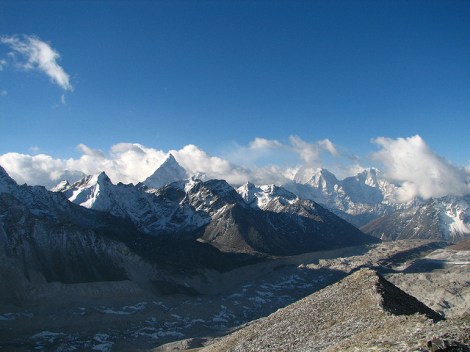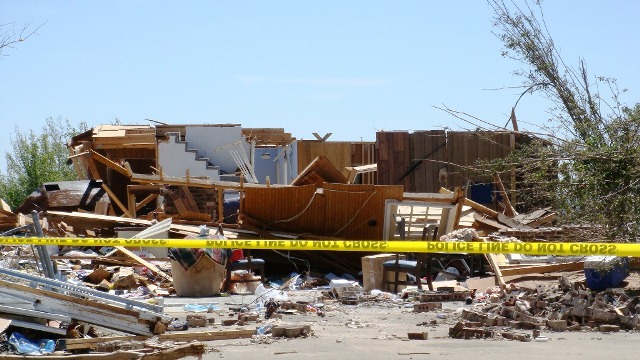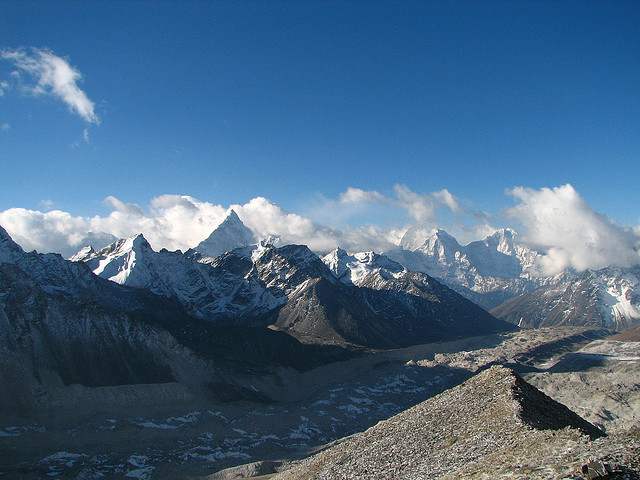
mckaysavageA glacier in Nepal.
Summer Rupper, a geologist at Brigham Young University, traveled to Bhutan. Her goal in visiting the Himalayan nation in southern Asia was to predict how its glaciers were likely to respond to various climate scenarios over the coming decades. The answer: No matter what, the glaciers are likely to shrink substantially.
Rupper’s most conservative findings indicate that even if climate remained steady, almost 10 percent of Bhutan’s glaciers would vanish within the next few decades. What’s more, the amount of melt water coming off these glaciers could drop by 30 percent. …
In fact, snowfall rates in Bhutan would need to almost double to avoid glacier retreat, but it’s not a likely scenario because warmer temperatures lead to rainfall instead of snow. If glaciers continue to lose more water than they gain, the combination of more rain and more glacial melt will increase the probability of flooding — which can be devastating to neighboring villages.
Note the point in that first paragraph: “even if climate remained steady.” In other words, even if the climate didn’t get any warmer, which is almost certainly not going to be the case.
Although Bhutan’s glaciers are massive and how they react to climate change will affect those downstream from the nation — read: the populous nation of Bangladesh — melt is a problem for glaciers the world over. And, by extension, for everyone who lives anywhere near the ocean.
As reported by the Associated Press earlier this week:
Scientists at the respected University of Innsbruck say that between 1902 and 2007, glaciers contributed 11 centimeters (4.33 inches) to a total sea level rise of about 20 centimeters (nearly 8 inches).
They also said Wednesday that by 2100, melting glaciers could raise sea levels by another 22 centimeters.
That doesn’t mean sea levels will only rise 22 centimeters. Other factors, like warmer seas, will also play a role. And as we saw with Sandy, higher sea levels are among the most dangerous aspects of climate change.
So, in summary: To prevent devastating sea-level rise, we need to halt glacier melt. At least in Bhutan, glacier melt is inevitable, even if the globe doesn’t keep getting any warmer. Ergo, we need to cool the planet off. Here’s one possible way to do that: Cover parts of the planet with massive blocks of ice.
Oh. Dang.




